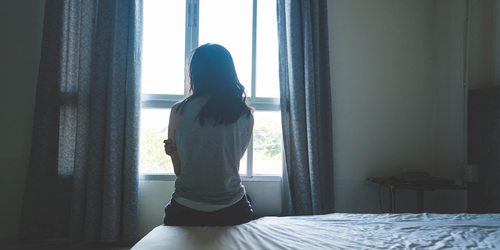One in 10 men pay for sex, according to new report
Commercial Sexual Exploitation
More than one in 10 men in England and Wales have paid for sex, according to a new, Government commissioned report published today.
The Nature and prevalence of prostitution and sex work in England and Wales today has been published by the University of Bristol.
Overall, the proportion of men paying for sex has risen from just two per cent in 1990, to four per cent in 2000 and to 11 per cent in the latest Survey of Sexual Attitudes and Lifestyles.
The increase in the number of recorded incidents of men paying for prostitutes could be down to a growing willingness to admit paying for sex, the report says.
In total, some 529 current or former people working in prostitution were questioned and the aim of the study is to help the Government decide if the law needs to be changed. Notably, the authors did admit it was difficult to measure the prevalence of prostitution in England and Wales.
Change prostitution law: The Nordic model
The UK Government is deciding whether or not to change the current law on prostitution as it pertains to England and Wales.
One option is to go for what is called the ‘Nordic model’ where you make the buying of sex a criminal offence.
First adopted in Sweden, prostitution levels there have fallen as a result. A number of countries around the world now make buying sex illegal, including Northern Ireland.
The Labour Leader, Jeremy Corbyn backs the Nordic model which would see the purchase of sex made a criminal offence. A Conservative Party commission also backed the Nordic approach.
CARE’s response
At CARE, we support the Nordic model which would criminalise the buyer. We believe that the majority of people in prostitution are now there out of choice, but due to a range of other factors.
That’s why we take an interest in this report because of its potential to influence the Government’s eventual policy.
Here is what we think:
This study carefully attempts to understand the reality of prostitution in England and Wales today.
As with all studies in this area due to the nature of prostitution, it is impacted by methodological limitations. This is particularly evident around the reality of the connection between human trafficking for the purposes of sexual exploitation and prostitution. However, we recognise it is a sincere effort to consider the available evidence in a balanced manner.
Different organisations will come to different conclusions on the basis of this study: it does not make recommendations with regard to what law and policy should be in this area.
However, the fact the study finds that “there are many individuals in prostitution who are subject to acute exploitation and serious and sustained harm” should be of significance to legislators. The report catalogues many of the harms associated with prostitution including physical or sexual violence against individuals in prostitution; physical health risks associated with the nature of the activities involved; psychological trauma for some in the industry and for those who have left it; and the risk of developing alcohol or drug dependency for some in prostitution are all noted in the report.
There is no perfect way to legislate in this area and in truth a multi-faceted approach is needed. We at CARE believe greater support needs to be given to individuals who desire to leave the sex industry. In addition, we support the criminalisation of the purchase of sexual services as the best way to reduce demand for prostitution. In our view, prostitution is inherently exploitative and there is clear evidence demand for prostitution helps to fuel demand for human trafficking for the purposes of sexual exploitation. Action to reduce the size and prevalence through reducing demand is the best way forward.
This report shows prostitution simply is not a job like any other. This study, like many before it, highlights the reality of widespread exploitation within prostitution and the reality that for many entering prostitution is a result of a lack of choice rather than a positive choice.
Find out more
For more on CARE’s work on the law around prostitution see here



Share story
One in 10 men pay for sex, according to new report